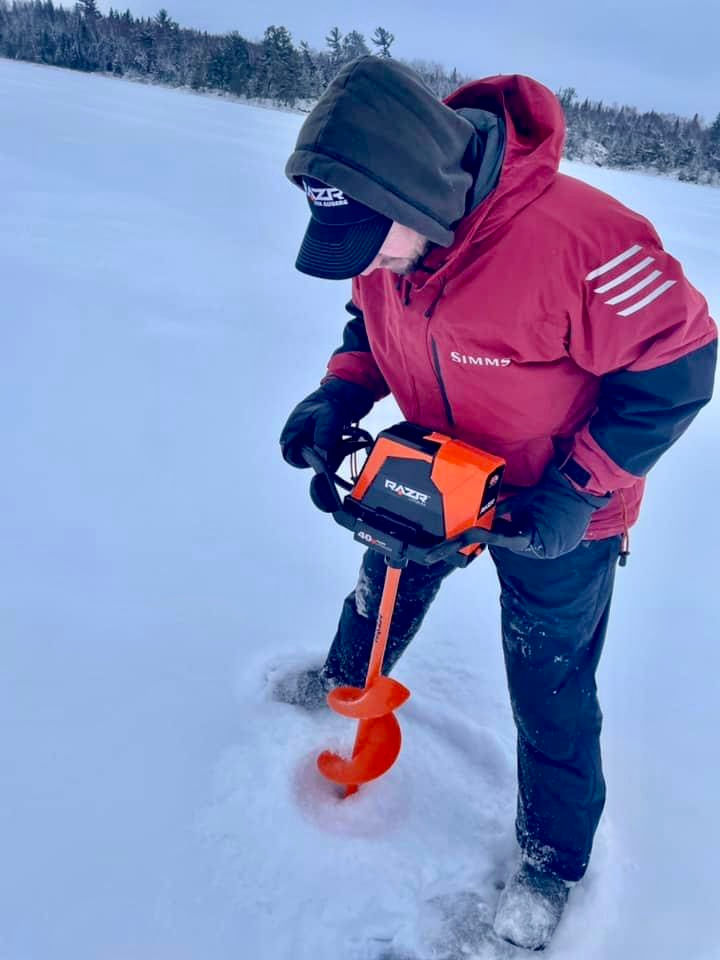Fishing with the Weather: How Barometric Pressure Affects Freshwater Fish
- RAZR Ice Augers
- Nov 22, 2022
- 2 min read
Barometric pressure, also known as atmospheric pressure, can have a significant impact on fish behavior in freshwater. Fish have a swim bladder, which is a gas-filled sac that helps them control their buoyancy in the water.

Changes in barometric pressure can affect the volume of gas in the swim bladder, which can cause fish to become more or less active.
When a low-pressure system moves in, the air pressure drops, causing the swim bladder to expand. This can cause discomfort and even pain for fish, making them less active and less likely to feed. As a result, fishing during low-pressure conditions can be less productive.
On the other hand, when a high-pressure system moves in, the air pressure increases, causing the swim bladder to contract. This can make fish more comfortable and active, leading to increased feeding and more productive fishing.

Fishing in stable pressure conditions can also be productive, as sudden changes in barometric pressure can sometimes cause fish to become disoriented and less likely to feed. Stable high-pressure systems can create consistent fishing conditions, while stable low-pressure systems may require anglers to adjust their tactics and target fish that are less affected by changes in pressure.
However, it's important to note that other factors such as water temperature, time of day, and the type of fish being targeted can also play a role in fish behavior and feeding patterns. It's also important to pay attention to changes in barometric pressure, as sudden drops or rises can indicate approaching weather systems that may affect fishing conditions.
In conclusion, understanding how barometric pressure affects fish behavior can be a useful tool for freshwater anglers. By keeping an eye on changes in pressure and combining that with other factors such as water temperature and time of day, anglers can increase their chances of success on the water.
